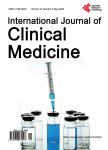Survey of <i>C. difficile</i>-Specific Infection Control Policies in Local Long-Term Care Facilities
Survey of <i>C. difficile</i>-Specific Infection Control Policies in Local Long-Term Care Facilities作者机构:Department of Internal Medicine Division of General Medicine Geriatrics and Palliative Care Division of Infectious Diseases and International Health University of Virginia Charlottesville USA
出 版 物:《International Journal of Clinical Medicine》 (临床医学国际期刊(英文))
年 卷 期:2014年第5卷第7期
页 面:414-419页
学科分类:1002[医学-临床医学] 100214[医学-肿瘤学] 10[医学]
主 题:Clostridium difficile Infection Infection Control Policies Long-Term Care Facilities
摘 要:Introduction: The incidence and severity of Clostridium difficile infection (CDI) has been increasing and long-term care facility (LTCF) residents are at high risk given their age, co-morbidities, and high antibiotic exposure. Infection control policies are crucial for controlling CDI, but there are currently no regulatory guidelines in the United States. Therefore, we evaluated infection control policies in local LTCFs to define the CDI-specific policies and the administrative and staff understanding of CDI, so as to identify perceived barriers for compliance. Methods: IRB approval was sought and exemption granted, all 8 local LTCFs were asked to participate. Each facility was visited by study personnel who interviewed the administrative Infection Control Practitioner (ICP) and 3-4 Licensed Practical Nurses (LPNs) with distinct survey format. Infection control policies were then compared to the SHEA recommendations for CDI in LTCFs. Results: Of the eligible facilities, 75% (n = 6) participated. ICP (n = 6) and LPNs (n = 21) were interviewed. All facilities accept residents with active CDI and 2 had written CDI-specific infection control policies. All facilities had hand hygiene or glove use policies and 2 had policies for the use of sporicidal environmental cleaning. No facility restricted antibiotic use. Each facility has a policy to instruct their staff through in-services, either annually or upon new hire, but 33% (n = 7) LPNs reported no facility-based CDI training. While 80% (n = 17) of LPNs felt comfortable with the facility CDI policies, only 11 accurately restated it. ICPs felt the most relevant barrier to staff compliance was time constraints (n = 4, 67%), however, LPNs felt it was limited knowledge (n = 10, 48%) and poor communication (n = 2, 10%). Discussion and Conclusions: With the increasing incidence and severity of CDI in LCTF, few of the facilities surveyed had CDI-specific policies. Despite CDI-specific training, there is a perceived knowledge and



